Pierre-Joseph Proudhon
Father of Anarcho-Mutualism
(1809-1865)
"Property is theft!"
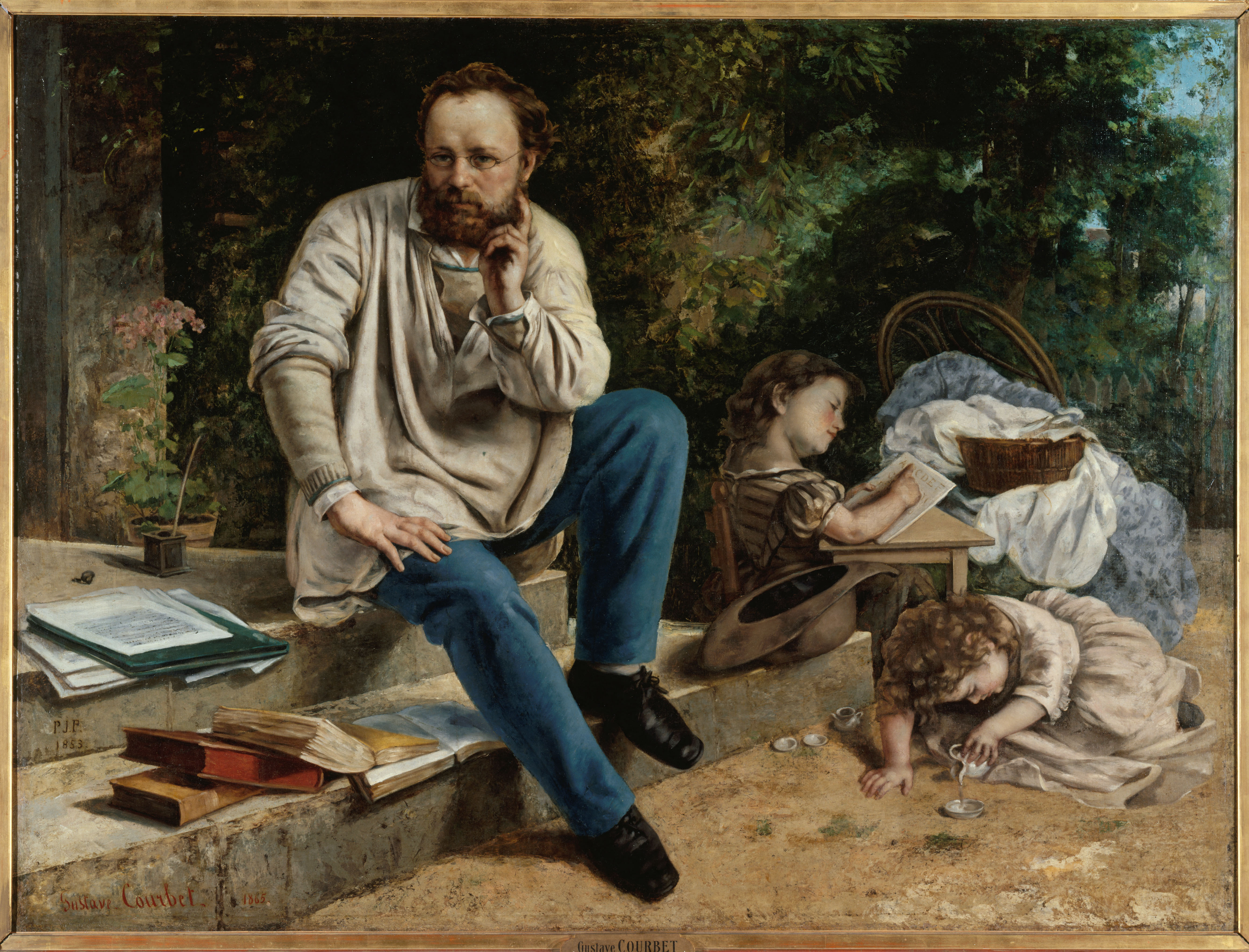
From: Histoire socialiste sous la direction de Jean Jaurès 1908, Volume 9, la 2e République, illustration page 317
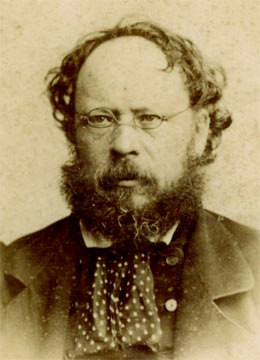
From: Pierre-Joseph Proudhon, né le 15 janvier 1809 à Besançon dans le Doubs et mort le 19 janvier 1865 à Paris, est un polémiste, journaliste, économiste, philosophe et sociologue libertaire français. Il est le seul théoricien socialiste révolutionnaire du XIXe siècle d'origine ouvrière.
About
Pierre-Joseph Proudhon (UK: /ˈpruːdɒ̃/, US: /pruːˈdɒ̃, pruːˈdoʊn/, French: [pjɛʁ ʒɔzɛf pʁudɔ̃]; 15 January 1809, Besançon – 19 January 1865, Paris) was a French socialist, politician, philosopher, economist and the founder of mutualist philosophy. He was the first person to declare himself an anarchist, using that term, and is widely regarded as one of anarchism's most influential theorists. Proudhon is considered by many to be the "father of anarchism". Proudhon became a member of the French Parliament after the Revolution of 1848, whereafter he referred to himself as a federalist. Proudhon described the liberty he pursued as "the synthesis of communism and property". Some consider his mutualism to be part of individualist anarchism while others regard it to be part of social anarchism.
Proudhon, who was born in Besançon, was a printer who taught himself Latin in order to better print books in the language. His best-known assertion is that "property is theft!", contained in his first major work, What Is Property? Or, an Inquiry into the Principle of Right and Government (Qu'est-ce que la propriété? Recherche sur le principe du droit et du gouvernement), published in 1840. The book's publication attracted the attention of the French authorities. It also attracted the scrutiny of Karl Marx, who started a correspondence with its author. The two influenced each other and they met in Paris while Marx was exiled there. Their friendship finally ended when Marx responded to Proudhon's The System of Economic Contradictions, or The Philosophy of Poverty with the provocatively titled The Poverty of Philosophy. The dispute became one of the sources of the split between the anarchist and Marxist wings of the International Working Men's Association. Some such as Edmund Wilson have contended that Marx's attack on Proudhon had its origin in the latter's defense of Karl Grün, whom Marx bitterly disliked, but who had been preparing translations of Proudhon's work.
Proudhon favored workers' council and associations or cooperatives as well as individual worker/peasant possession over private ownership or the nationalization of land and workplaces. He considered social revolution to be achievable in a peaceful manner. In The Confessions of a Revolutionary, Proudhon asserted that "Anarchy is Order Without Power", the phrase which much later inspired in the view of some the anarchist circled-A symbol, today "one of the most common graffiti on the urban landscape". Proudhon unsuccessfully tried to create a national bank, to be funded by what became an abortive attempt at an income tax on capitalists and shareholders. Similar in some respects to a credit union, it would have given interest-free loans. After the death of his follower Mikhail Bakunin, Proudhon's libertarian socialism diverged into individualist anarchism, collectivist anarchism, anarcho-communism and anarcho-syndicalism, with notable proponents such as Carlo Cafiero, Joseph Déjacque, Peter Kropotkin and Benjamin Tucker.
Source: Wikipedia.org
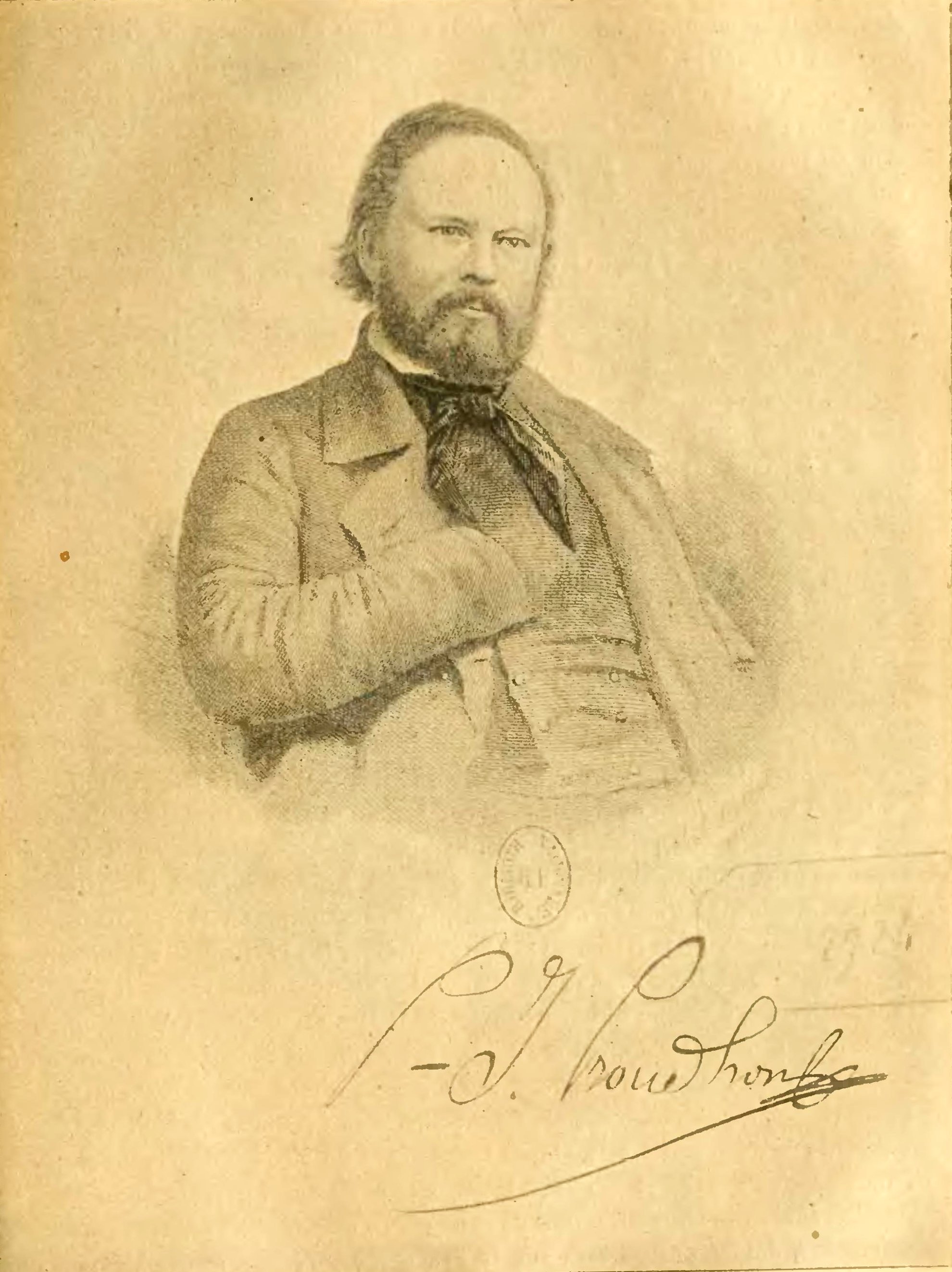
From: French: Pierre-Joseph Proudhon et ses enfants en 1853
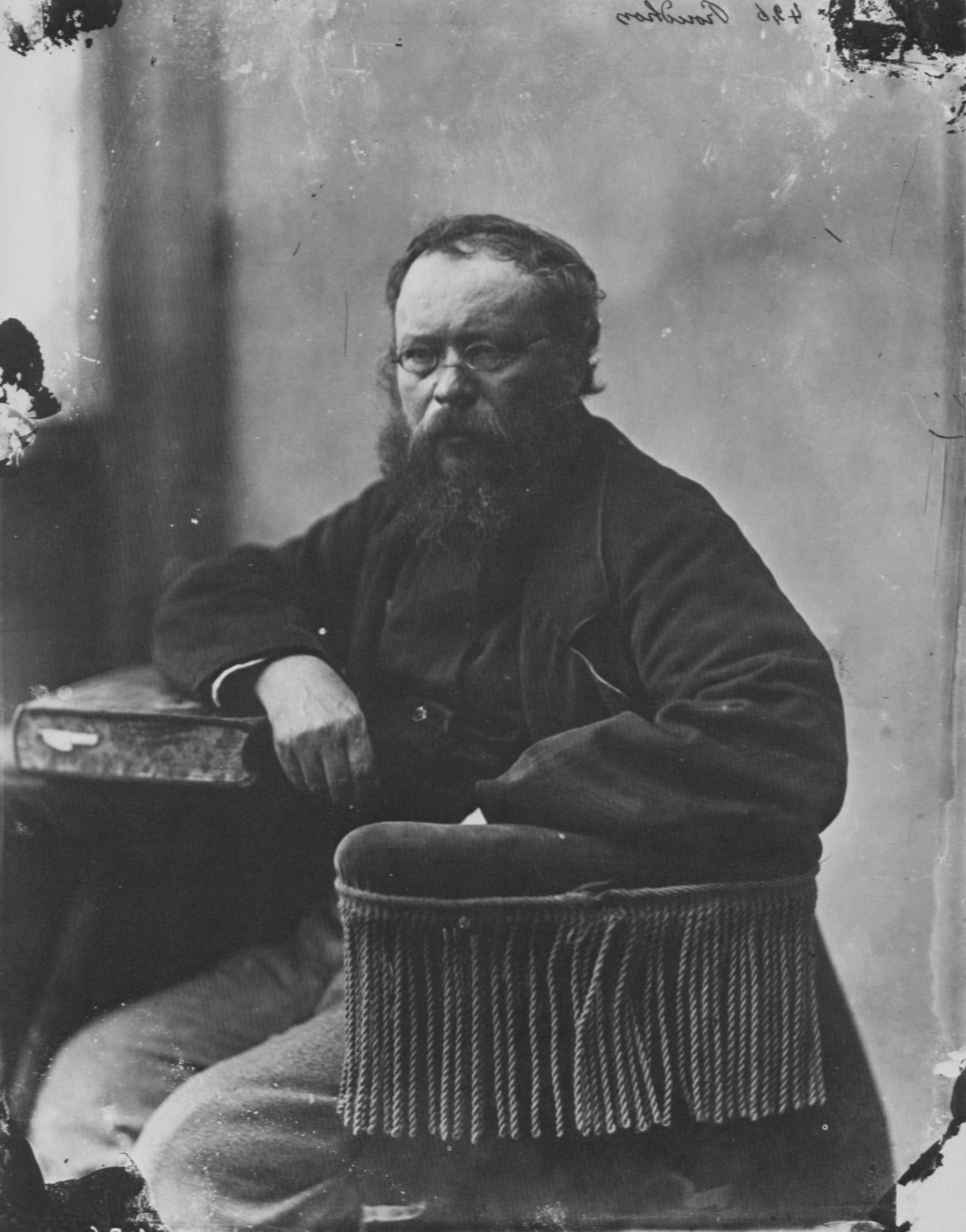
From: Deutsch: Tournachon, Gaspard-Félix: Pierre Joseph Proudhon (1809-1865)
Works
About
Current: MIA Archive Glossary: Pierre-Joseph Proudhon
Books
1840: What is Property?
1847: System of Economical Contradictions: or, The Philosophy of Poverty
1851: General Idea of the Revolution in the Nineteenth Century
Articles
1837: Application for the Suard Pension
1839: The Celebration of Sunday
1842: Explanations Presented to the Public Minister on the Right of Property
1843: The Creation of Order in Humanity : Or, Principles of Political Organization
1845: My Testament : or, Society of Avengers
1847: On the Jews
1848: The Malthusians, the Representatives of the People
1848: Toast to the Revolution
1849: The Nature and Destination of Government
1849: The Coming Era of Mutualism
1849: God is Evil, Man is Free
1849: In Connection with Louis Blanc : The Present Use and Future Possibility of the State
1849: Interest and Principal: Arguments Drawn from the Operations of the Bank of France
1849: Interest and Principal: A Loan is a Service
1849: Interest and Principal: The Origin of Ground Rent
1849: Interest and Principle: The Circulation of Capital, Not Capital Itself, Gives Birth to Progress
1849: The Nature and Destination of Government
1849: Parliamentary Isolation
1849: Selections from the Carnets
1849: The State : Its Nature, Object, and Destiny
1849: What is Government? What is God?
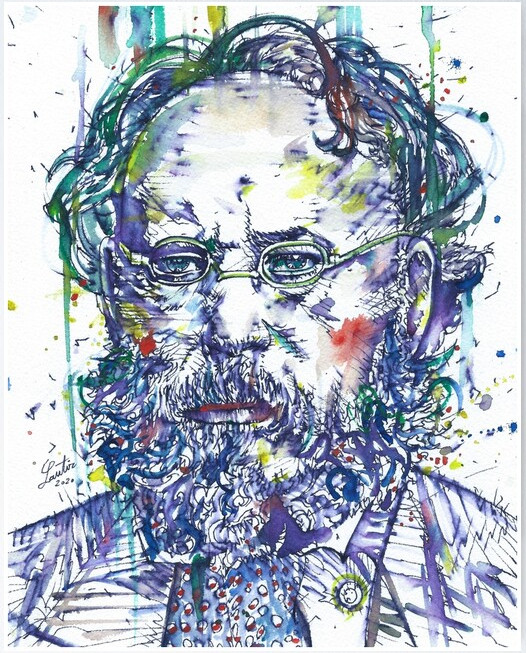

1850: Dilemma: Red or White
1851: The Philosophy of Progress
1852: The Extremes
1852: The Social Revolution Demonstrated by the Coup d’Etat of December 2, 1851
1852: Unanimity : Universal Consent
1855: New Propositions Demonstrated in the Practice Of Revolutions
1855: “Questions eliminated by this organization” and “Revolutionary Practice”
1859: Notes on “How Business Goes in France, and Why We Will Have War…”, by Pierre Joseph Proudhon
1861: Relation of the State and Liberty, According to Modern Right
1861: The Theory of Taxation
1863: The Federative Principle and the Need to Reconstitute the Party of Revolution
1895: Galileo : A Drama
1927: The Solution of the Social Problem : [Excerpts]
unknown: Moral Education
Letters
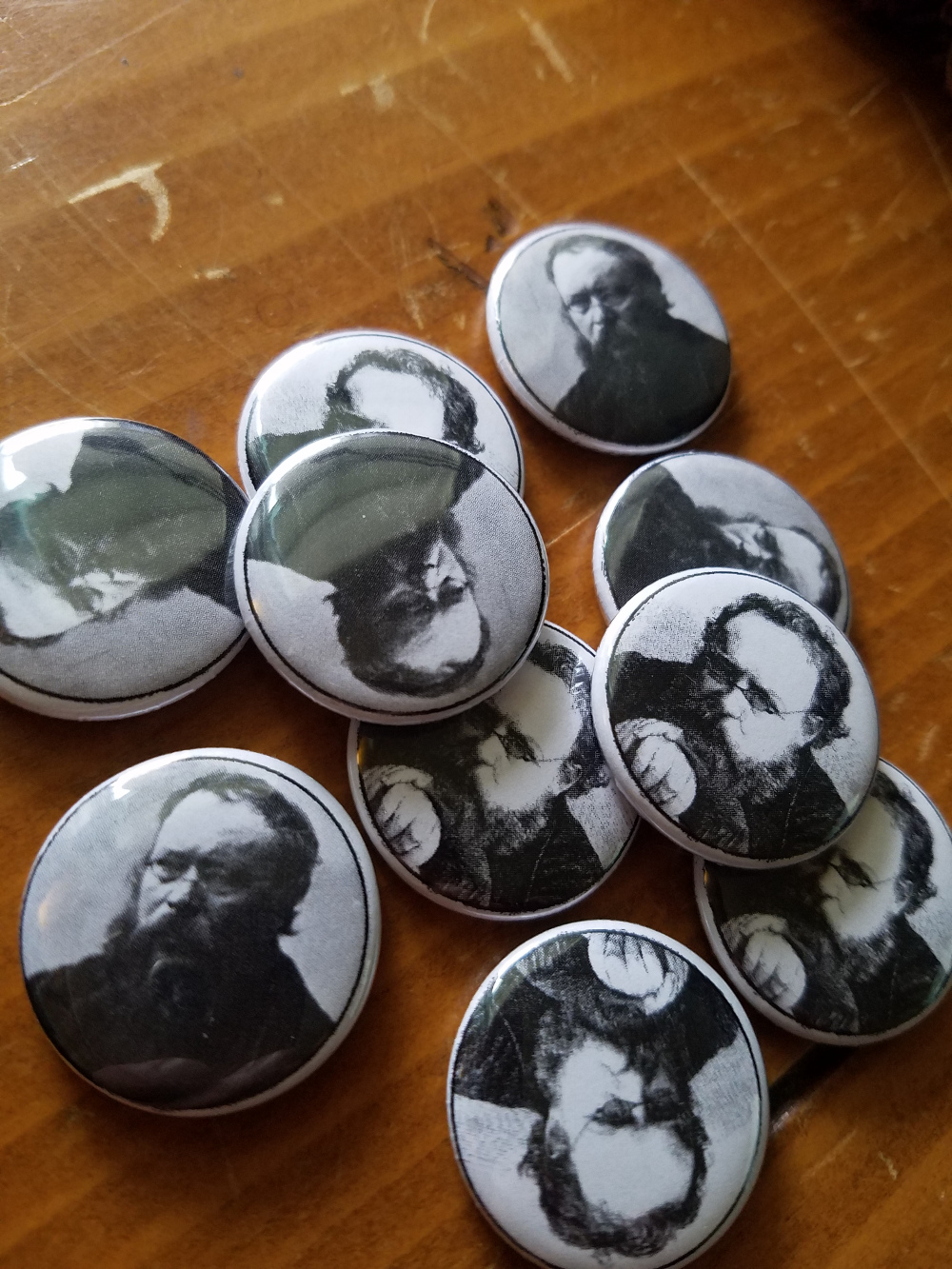
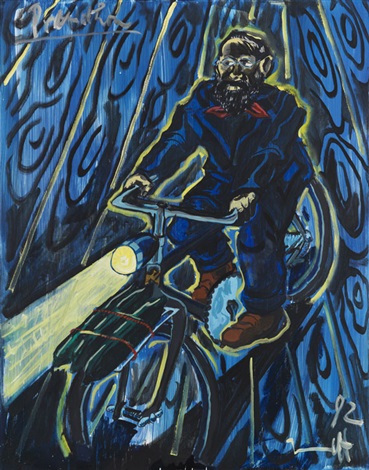
1840: Letter to the Members of the Academy of Besançon
1841: A Letter To M. Blanqui
1842: Letter to Bergmann
1846: Proudhon To Marx: Lyon, 17 May 1846
1846: Letter of Proudhon To Marx
1848: Letter to Jeanne Deroin
1849: Letter to Pierre Leroux
1851: Letter to A. M. Boutteville
1851: Letter to Langlois
1857: Letter to Villiaumé
1864: Letter to Several Workers in Paris and Rouen